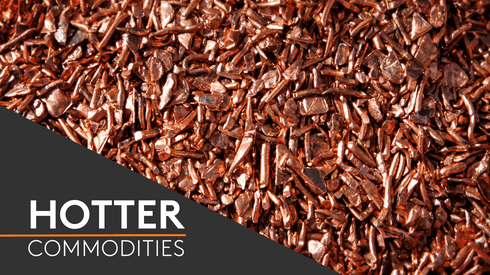Shanghai’s Yangshan bonded zone is currently home to at least 245,000 tonnes of copper, more than double the amount housed in all London Metal Exchange warehouses combined, as well as heaps of nickel, zinc and aluminium worth $2.1-2.3 billion at today’s prices, down from around $4 billion in 2017.
Traders use the zone as a venue for arbitrage, shipping then storing metal there until prices in China flare higher than overseas. This sometimes generates hundreds of dollars per tonne in the process.
But with major banks moving to limit their exposure to commodity trade finance, and in particular support for commodity inventories, traders and importers who use it as a place to hold units are finding this increasingly challenging, with the move having ripple effects across the rest of the industry.
“Because of the issues with some of the Singapore oil traders, some banks have stopped doing repo business this year,” Eric Liu, head of copper trading at Shanghai merchant ASK Resources, said. There had been no change for his company, he added, which benefits from ties to a Chinese state-owned entity so has greater access to capital.
Repo mainstay
Repurchase agreements, known as ‘repo’ deals, are popular in the metals industry. In such transactions, a trader or holder of commodities transfers ownership of assets to a financial partner, with a commitment to buy them back at a later date.
Holding large quantities of costly materials for any period is an expensive business at any time, but this has been exacerbated since prices for metals recovered strongly this year on news of booming Chinese demand and supply bottlenecks.
“Repo is the preferred way versus pure inventory financing, because it means material is shifted off balance sheet for a period of time, so it helps the trader be less leveraged from a financial leverage ratio basis,” Eric Chen, head of business development at digital trade platform Guud Finance, said.
But increasingly this type of business has become more difficult for traders in China to access, several sources in the Shanghai markets told Fastmarkets. Major banks were said to be reviewing their commodity finance portfolios across Asia.
Banks get cautious
The commodities world has been beset with defaults to financial partners this year, mainly centered around energy and agricultural traders in Singapore and Dubai.
Banks such as ABN AMRO, Rabobank, HSBC, BNP Paribas and Société Générale have all publicly acknowledged a pullback from the sector, but others were also wary of issuing new credit lines, or becoming involved in transactions that could carry even small amounts of risk.
“Everyone is scared right now, and I can tell you there’s practically no bank in Asia that is not reviewing its commodity trade finance business,” a trade finance source who declined to be named told Fastmarkets.
Main market participants that were still offering repo and inventory finance for Shanghai have been cited by several Fastmarkets sources as JP Morgan, ICBC Standard Bank, ING and Commonwealth Bank of Australia.
Stocks of copper and other metals in Shanghai have dwindled as financial arbitrages closed in recent years
Knock-on effects
A lack of available finance has been given as a reason for stocks rising at a slower pace than expected, following a lengthy closed arbitrage window.
Rather than take in metal from abroad, hold it and wait for a profitable time to import, some traders had fewer options during volatile market conditions and chose to liquidate tonnes when confronted with a lack of buying appetite.
A lack of demand for copper domestically, and a closed arbitrage ratio, led to a sharp selloff in Shanghai copper premiums from July to September.
“We’re just not able to do bonded business at the moment,” a source from one Asia-based commodities trader, who asked not to be named because of the sensitive nature of the dealings, said. “For now, we’re just focused on seaborne or domestic market trades.”



